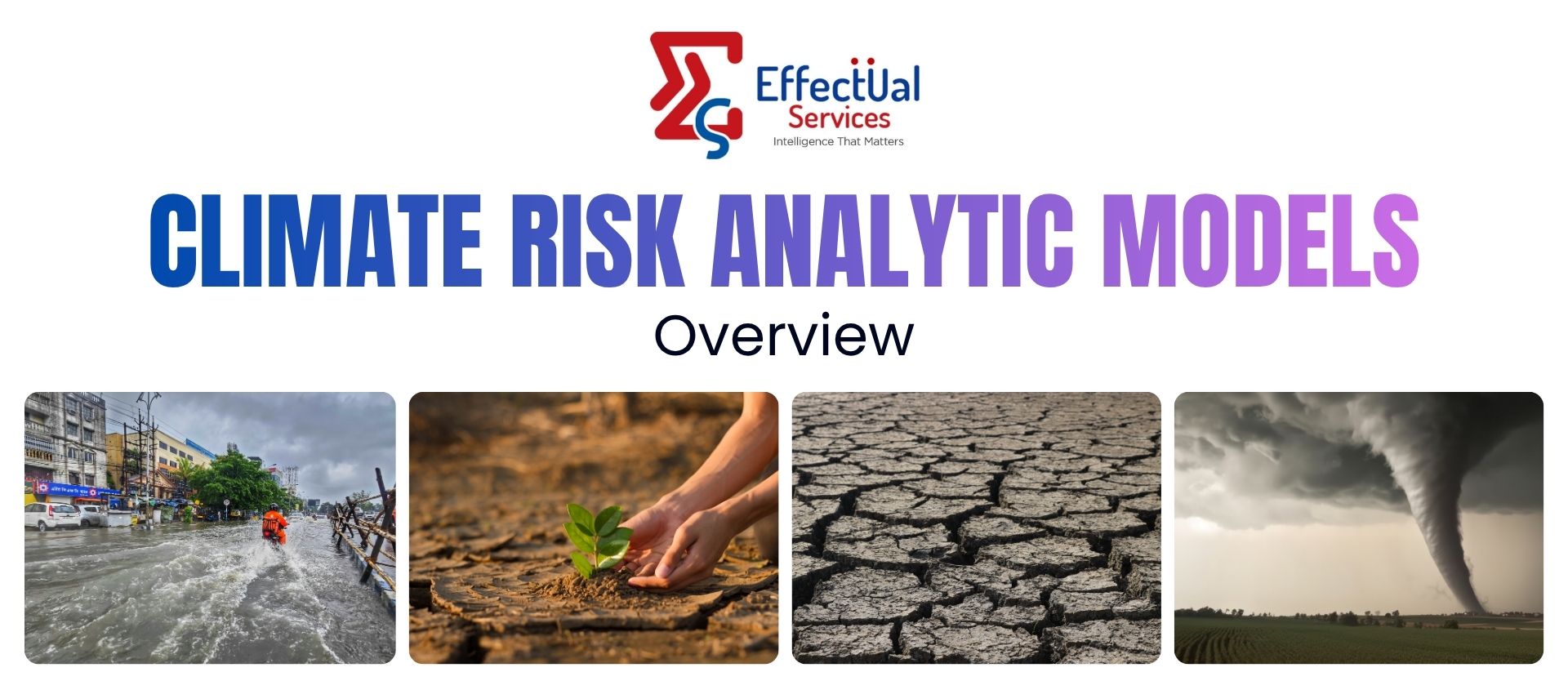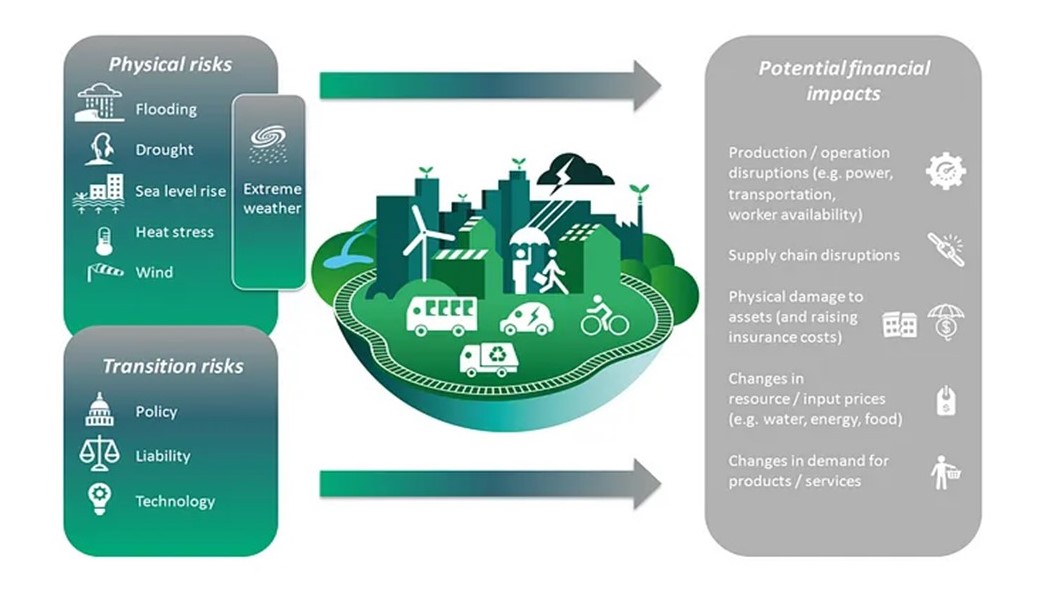Climate Risk Analytic Models: Overview

Understanding the Mechanics of a Climate Risk Analytical Model
A climate risk analytical model is a tool used to assess and manage the potential risks and impacts of climate change on an organization, community, or region. The model uses data and analysis to identify and evaluate potential risks, as well as to develop strategies to mitigate those risks.
- Data Collection: The first step in using a climate risk analytical model is to gather relevant data on climate change and its potential impacts. This can include data on temperature, precipitation, sea level rise, and other climate variables, as well as data on vulnerable populations, infrastructure, and ecosystems.
- Risk Assessment: Once data has been collected, a risk assessment is conducted to identify potential risks and vulnerabilities. This involves analyzing the data to identify areas that are most at risk from climate change impacts, such as flooding, drought, or extreme weather events.
- Risk Modeling: The next step is to use the data and risk assessment to create a risk model. This model is used to forecast the potential impacts of climate change on the area of interest, including the likelihood and severity of specific risks.
- Scenario Analysis: A scenario analysis is then conducted, using the risk model to explore different scenarios and potential outcomes based on different levels of greenhouse gas emissions, temperature increases, and other factors. This helps to identify potential risks and opportunities under different future scenarios.
- Risk Management: Based on the results of the risk assessment, risk modeling, and scenario analysis, strategies are developed to manage and mitigate climate risks. These strategies may include actions such as improving infrastructure resilience, implementing adaptive land use planning, and reducing greenhouse gas emissions.
- Monitoring and Evaluation: Finally, ongoing monitoring and evaluation are conducted to assess the effectiveness of the risk management strategies and to update the risk model as new data becomes available.
Overall, a climate risk analytical model provides a structured and data-driven approach to assessing and managing the potential impacts of climate change. By identifying and mitigating risks, organizations and communities can become more resilient and better prepared to cope with the challenges of a changing climate.

About Effectual Services
Effectual Services is an award-winning Intellectual Property (IP) management advisory & consulting firm offering IP intelligence to Fortune 500 companies, law firms, research institutes and universities, and venture capital firms/PE firms, globally. Through research & intelligence we help our clients in taking critical business decisions backed with credible data sources, which in turn helps them achieve their organisational goals, foster innovation and achieve milestones within timelines while optimising costs.
We are one of the largest IP & business intelligence providers, globally serving clients for over a decade now. Our multidisciplinary teams of subject matter experts have deep knowledge of best practices across industries, are adept with benchmarking quality standards and use a combination of human and machine intellect to deliver quality projects. Having a global footprint in over 5 countries helps us to bridge boundaries and work seamlessly across multiple time zones, thus living to the core of our philosophy - Innovation is global, so are we !!!
Solutions Driving Innovation & Intelligence
Enabling Fortune 500's, R&D Giants, Law firms, Universities, Research institutes & SME's Around The Globe Gather Intelligence That
Protects and Nurtures Innovation Through a Team of 250+ Techno Legal Professionals.

